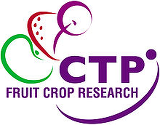October 2018 – September 2022
Laurence Mason

In this project, Laurence is investigating spotted wing Drosophila (SWD)-entomopathogen interactions to gain new insights into processes in both the fungus and insect that either promote or disrupt effective pest control. This project will not only improve our understanding of how entomopathogenic fungi interact with their hosts, but also contribute to some real-world solutions to the challenge of environmentally friendly Drosophila suzukii control.

One novel pest-control strategy gaining attention is the use of biological insecticides based on fungi, rather than chemicals. As living organisms, they may reproduce within the field under the right conditions, potentially providing long-term pest control. One promising group of fungi is the genus Metarhizium, which naturally infects a wide range of insects with its aerial conidiaspores.
Drosophila suzukii is a dipteran pest of soft fruit endemic to East Asia. Recently it has appeared in the USA and Northern Europe where it is rapidly becoming invasive. Female flies oviposit on ripening fruit, the larvae then consume the fruit and render it unmarketable. One aim of this PhD research is to find out if some strains of the Metarhizium fungus are any good at infecting Drosophila suzukii. If some particularly virulent or passive strains are discovered, there will be an underlying physiological reason that can be investigated further.


